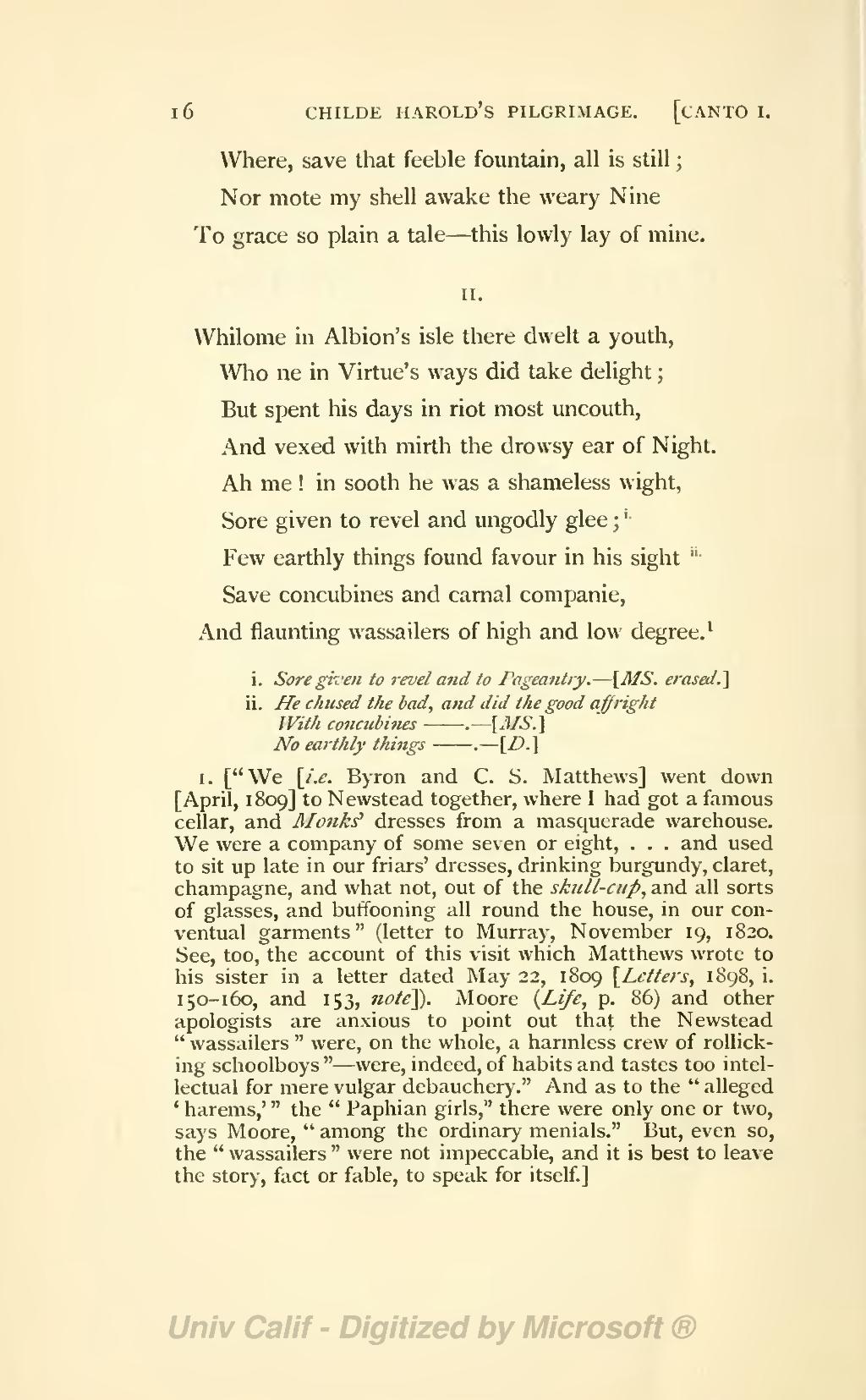16
CHILDE HAROLD’S PILGRIMAGE.
[CANTO I.
Where, save that feeble fountain, all is still;
Nor mote my shell awake the weary Nine
To grace so plain a tale—this lowly lay of mine.
II.
Whilome in Albion's isle there dwelt a youth,
Who ne in Virtue's ways did take delight;
But spent his days in riot most uncouth,
And vexed with mirth the drowsy ear of Night.
Ah me! in sooth he was a shameless wight,
Sore given to revel and ungodly glee;[1]
Few earthly things found favour in his sight[2]
Save concubines and carnal companie,
And flaunting wassailers of high and low degree.[3]
- ↑ Sore given to revel and to Pageantry.—[MS. erased.]
- ↑
He chused the bad, and did the good affright
With concubines ——.—[MS.]
No earthly things ——.—[D.] - ↑ ["We [i.e. Byron and C. S. Matthews] went down [April, 1809] to Newstead together, where I had got a famous cellar, and Monks' dresses from a masquerade warehouse. We were a company of some seven or eight, ... and used to sit up late in our friars' dresses, drinking burgundy, claret, champagne, and what not, out of the skull-cap, and all sorts of glasses, and buffooning all round the house, in our conventual garments" (letter to Murray, November 19, 1820. See, too, the account of this visit which Matthews wrote to his sister in a letter dated May 22, 1809 [Letters, 1898, i. 150-160, and 153, note). Moore (Life, p. 86) and other apologists are anxious to point out that the Newstead "wassailers" were, on the whole, a harmless crew of rollicking schoolboys"—were, indeed, of habits and tastes too intellectual for mere vulgar debauchery." And as to the "alleged 'harems,'" the "Paphian girls," there were only one or two, says Moore, "among the ordinary menials." But, even so, the "wassailers" were not impeccable, and it is best to leave the story, fact or fable, to speak for itself.]
